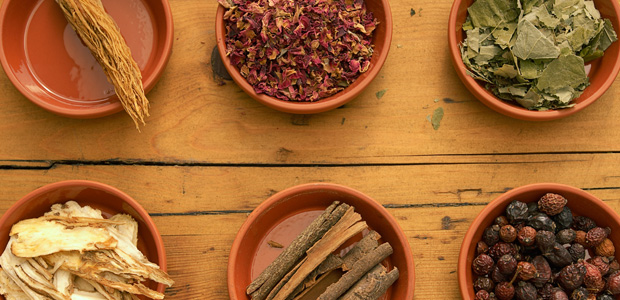Advertisement
Supplements And Herbs For A Healthy Heart
Heart disease statistics could make one’s blood run cold-clogged arteries, heart attacks and strokes are responsible for almost 40 percent of North American deaths. The good news is that in most cases, heart disease is preventable. If you take action on your heart’s behalf, you stand a good chance of enjoying vigorous circulation and heart … Continued

Heart disease statistics could make one’s blood run cold-clogged arteries, heart attacks and strokes are responsible for almost 40 percent of North American deaths.
The good news is that in most cases, heart disease is preventable. If you take action on your heart’s behalf, you stand a good chance of enjoying vigorous circulation and heart function into old age.
Herbalist Michael Vertolli, BSc, CHP, co-founder of the Living Earth School of Natural Therapies, explains that reducing the body’s toxic load is critical in the prevention and treatment of cardiovascular problems. It is the action of various toxins that damages the heart, arteries and blood cholesterol (turning it into a harmful substance).
The basics of a healthy lifestyle apply: stop smoking, use alcohol in moderation and eat a diet that emphasizes fresh, certified organic vegetables, fruits, legumes and whole grains. Avoid processed foods and hydrogenated fats. If you consume dairy and meats, choose lower fat and organically grown options whenever possible. Cultured dairy products from whole milk are another healthier choice.
Vertolli points out that chlorine is very irritating to the arteries and recommends the use of filtered water for drinking, showering and bathing.
Regular exercise strengthens the heart. Daily meditation, prayer or relaxation reduces anxiety and anger levels. Emotional wellness is important to heart health, since chronic fear and anger also produce toxins.
Necessary Nutrients
Many nutrients and herbs support the heart and circulatory system. Used in combination with a healthy diet and lifestyle, they can significantly improve cardiovascular wellness. Scientific research indicates that our nutritional status directly affects our heart and blood vessels.
Free radicals play an important role in damaging arteries and cholesterol. Antioxidants such as vitamins C and E, selenium and cysteine support cardiovascular health. Vitamins B1 and B3 lower cholesterol levels, while vitamin B6 and folic acid inhibit the formation of homocysteine, a compound that can damage arteries. Immune enhancers such as vitamin A and thymus and spleen extracts help white blood cells naturally prevent arterial damage. Calcium, potassium, magnesium and chromium are important for maintaining strong, regular heartbeat and keeping cholesterol levels normal. Many holistic doctors have found that taking dosages of these nutrients above the amounts available in even the healthiest diet is often supportive to the cardiovascular system. Supplements formulated to support the heart and arteries provide a convenient way to get the needed quantities.
The right fatty acids are also important for cardiovascular health. Fish oils (omega-3 fats), flax seed oils, linoleic acid, alpha-linolenic acid (omega-6 fats), and oleic acid (an omega-9 fat) help keep the blood free of clots and reduce cholesterol levels.
Speaking of cholesterol, Vertolli points out that a healthy liver is very important since the liver regulates blood fats. In fact, he has seen cases where vegetarians had high cholesterol due to liver problems. Herbs such as dandelion, milk thistle and gentian detoxify and support the liver. A good cardiovascular protocol also includes detoxification of the urinary and lymphatic systems.
Herbs for the Heart
Herbalists generally rely on six categories of herbs to support the heart and circulation. Many of these herbs, most notably garlic, ginkgo biloba, ginseng and hawthorn, are also receiving increasing medical attention, as their traditional uses have proven themselves:
- To strengthen and stabilize heart function: hawthorn berries, motherwort, ginkgo biloba and, to a lesser extent, linden flowers, passion flower, ginger, garlic and lemon balm.
- Circulatory stimulants: ginger, garlic, prickly ash and cayenne.
- Arterial toners and strengtheners: meadowsweet, prickly ash, horsetail and rosemary.
- For calming and blood pressure lowering: hawthorn, motherwort, linden, passionflower and lemon balm.
- Antioxidant herbs: ginkgo biloba, hawthorn, garlic and rosemary.
- Herbs that lower blood fats and prevent blood clots: hawthorn, garlic, ginkgo biloba, guggul and ginger.
Once lifestyle changes and heart-supportive herbs have done their work, Vertolli recommends adaptogens, herbs that help build endurance and strength: the various ginsengs, astragalus and reishi mushrooms. Clearly, with heart disease, just as with other illnesses, a reliance on nature stacks the odds in our favor.




